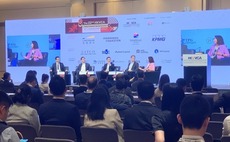
Renminbi secondaries: An underpenetrated market

Plenty of Chinese high net worth individuals want to sell LP interests in renminbi funds. Local and foreign secondaries managers would like to take advantage, but they are held back by an immature market
Gopher Asset Management, the PE arm of NASDAQ-listed Noah Holdings, closed its debut renminbi-denominated secondaries fund-of-funds at RMB600 million ($97 million) in 2013. The timing was good: LPs' exit options were limited amidst the domestic IPO drought and the fund was fully deployed within one year.
When China's securities regulator resumed IPOs and promised to introduce a more transparent listing process, investors' hopes were revived. However, the lengthy reform process left more than 900 companies awaiting approval to list, and so the secondary market remained a tempting alternative source of liquidity. Last December, Gopher duly closed its second secondaries fund at RMB1.3 billion.
"With China's public markets trading so high recently, many opportunistic domestic investors want to sell their shares in illiquid private equity funds and shift the money into the stock market. This will lead to increasing PE secondary transactions for us," says Chun Zeng, managing partner at Gopher.
In the past few years, a huge number of Chinese high net worth individuals (HNWIs) and small companies have sunk capital into PE funds, and as these funds near the end of their lives, GPs need to return capital to LPs. Engineering a secondary sale is one way of doing this. However, it isn't easy for secondary fund managers to structure deals when their own HNWI LPs are not experienced in the asset class.
Limited deal flow
The drop in renminbi fundraising seen over the past two years is indicative of how investor sentiment has turned. After $35 billion went into 272 vehicles in 2011, the annual totals have declined: $26 billion in 2012 and $17 billion in 2013 respectively, although the market rebounded to $22 billion last year.
With LPs defaulting on fund commitments, the government has set up secondaries trading platforms in Shanghai and Beijing. However, transactions are limited. "It's difficult to transfer LP interests through those platforms because they aren't market-driven. Transactions tend to be based on private negotiations between LPs, rather than working through an established system," says Vincent Wang, managing partner at consultancy Promise Advisors.
In addition, renminbi GPs are reluctant to share information on their portfolios, complicating any attempts to set valuations.
Although Gopher focuses on buying LPs interests, deals usually come via GPs with which the firm has established relationships from previous primary fund-of-funds investments. To date, the firm has acquired positions in nearly 30 renminbi funds. As individual LP interests in each fund tend to be very small, Gopher conducts due diligence to identify "high quality HNWIs," so designated because they have exposure to multiple funds. This presents the opportunity for bulk deals, with pricing based on the quality of the portfolios to which these LPs have exposure.
"Another group of LPs willing to sell are those who invested in multiple local government-backed funds a few years ago, which are quite sizeable. The GPs at that time guaranteed to return principal or a minimum return to investors within 4-5 years through share buy-backs. As time goes by, GPs may not have enough cash to buy back these interests but LPs want a way out. We might be a solution," Zeng says.
The irony is that many of the market characteristics that facilitate Gopher's deal-sourcing - HNWIs who did not fully understand the asset class rushing into funds and now wanting to get out - also shape its fundraising efforts. Gopher relies on Noah's network of wealth management clients to raise capital. Although the LP base has become more institutionalized, most investors are still HNWIs.
To ensure that its funds remain stable, the firm has to be careful in how it deals with these LPs.
"Over the past 3-5 years, Chinese HNWIs have come to understand that it is normal for a private equity fund to have a life of 7+3 years. Since we're secondaries, our fund life is 7+2 years," Zeng says. "Investors should consider carefully whether they have sufficient cash flows during this period when making commitments to our funds." Breaking agreements can result in legal penalties.
US dollar issues
Most of the secondary activity in China happens at the LP interest level; there are no renminbi funds focusing on direct secondaries or portfolios restructuring, as some of their US dollar counterparts do. NewQuest Capital Partners has looked at working with domestic partners, but nothing has materialized to date. A major hurdle is structuring transactions.
"We can buy renminbi portfolios as a US dollar fund, but it makes the transaction more complex. The company must be a foreign-invested entity or be willing to become one, and that entails changing the format of the investment entity," says Bonnie Lo, a partner at NewQuest. "Also the renminbi investments we have looked at tend to be small. Those not linked to official funds tend to be held by special purpose vehicles backed by a string of individual investors."
One possible solution is to raise a renminbi vehicle to execute onshore deals. However, the fundamental issue is that China has yet to achieve a critical mass of institutionalized local LPs. Although long-term players such as insurance companies and the National Council for Social Security Fund are now present onshore, it is unclear when and to what extent they would want to participate in the secondaries market.
"They're new in the market and secondaries might be a bit advanced for them. They may enter the secondaries market they may back global secondaries funds operating in the US and Europe. As we focus on direct secondaries, we are probably too niche, but I think they will expand their programs eventually," Lo adds.
On the other hand, given the Chinese government is taking steps to loosen capital controls, foreign investors may not have to enter the market through renminbi funds.
"It's a while since we have looked at the technicalities of coming onshore," says Jason Sambanju, head of Asia secondaries at Deutsche Investment Management. "But given the trend towards loosening capital controls in China, especially in the past 12-24 months, the regulatory environment is becoming a bit more conducive towards offshore funds coming onshore."
Latest News
Asian GPs slow implementation of ESG policies - survey
Asia-based private equity firms are assigning more dedicated resources to environment, social, and governance (ESG) programmes, but policy changes have slowed in the past 12 months, in part due to concerns raised internally and by LPs, according to a...
Singapore fintech start-up LXA gets $10m seed round
New Enterprise Associates (NEA) has led a USD 10m seed round for Singapore’s LXA, a financial technology start-up launched by a former Asia senior executive at The Blackstone Group.
India's InCred announces $60m round, claims unicorn status
Indian non-bank lender InCred Financial Services said it has received INR 5bn (USD 60m) at a valuation of at least USD 1bn from unnamed investors including “a global private equity fund.”
Insight leads $50m round for Australia's Roller
Insight Partners has led a USD 50m round for Australia’s Roller, a venue management software provider specializing in family fun parks.







